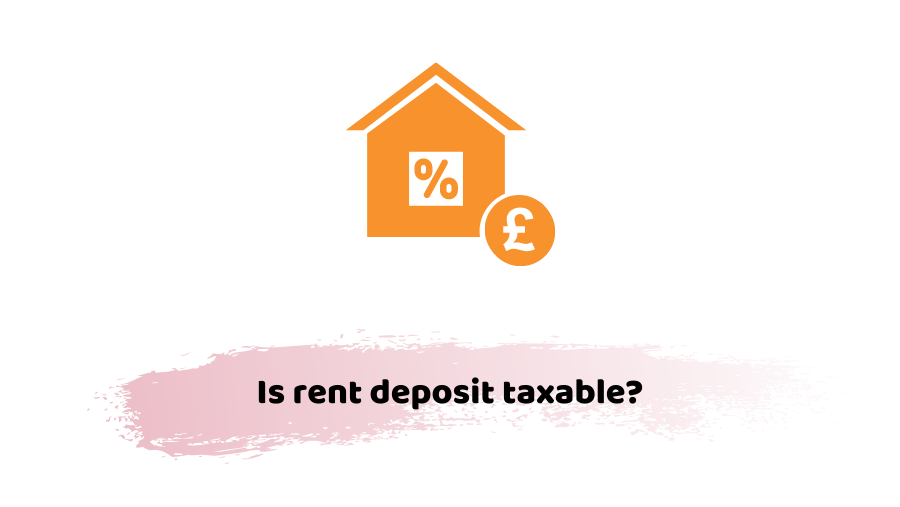A landlord will usually take a rent deposit from a tenant when letting a property. This is to cover the cost of any damage caused to the property by the tenant. Where a property is let on an assured shorthold tenancy, the rent deposit must be placed in an official tenancy deposit scheme.
The purpose of the deposit is to cover items such as damage to the property that extends beyond normal wear and tear. The items covered by the security deposit should be stated in the letting agreement.
The deposit charged cannot now exceed five weeks of rent. But the question here is, are rent deposits taxable?
Looking for a qualified accountant, get in touch with us!
Is it taxable?
The extent to which the rent deposit is included as income of the rental business depends on whether all or part of the deposit is retained by the landlord. In a straightforward case, a security deposit is taken by the landlord and held for the period of the tenancy. Then, it is returned to the tenant at the end of the rental period, the deposit is not included as income of the property rental business.
However, if at the end of the tenancy agreement, the landlord retains all or part of the rent deposit to cover damage to the property, cleaning costs, or other similar expenses, the amount retained is included as income of the property rental business. The retained deposit is a receipt of the business in the same way as rent received from the tenant. However, the actual costs incurred by the landlord in making good the damage or having the property professionally cleaned are deducted in computing the profits of the business.
The retained deposit is reflected as rental income of the property rental business for the period in which the decision to retain the deposit is taken, rather than for the period in which the deposit was initially collected from the tenant.
Example
Kevin purchases a property as a buy to let investment. He collects a security deposit of £1,000 from the tenant. The terms of the rent deposit are set out in the tenancy agreement.
The let comes to an end in July 2019. When checking out the tenant, it transpires that the tenant has failed to have the carpets cleaned, as per the terms of the agreement, and also that he has damaged a door, which needs to be repaired.
After discussion, Kevin and the tenant agreed that £250 of the deposit would be retained to cover cleaning and repair costs. The balance of the rental deposit (£750) is returned to the tenant in October 2011.
Kevin spent £180 having the property professionally cleaned and £75 having the door repaired.
When completing his tax return, he must include as income the £250 retained from the tenant. However, he can deduct the actual cost of cleaning the property (£180) and repairing the door (£75). As the amount actually spent (£255) exceeds the amount retained, he is given relief for the additional £5 in computing the profits of his property rental business. The balance of the deposit returned to the tenant is not taken into account as income of the business or deposit business.
If you have still any queries, then contact us here. At Accotax, you’ll find top-notch accounting services by our certified chartered accountants in London to carry out your tasks professionally.





















































